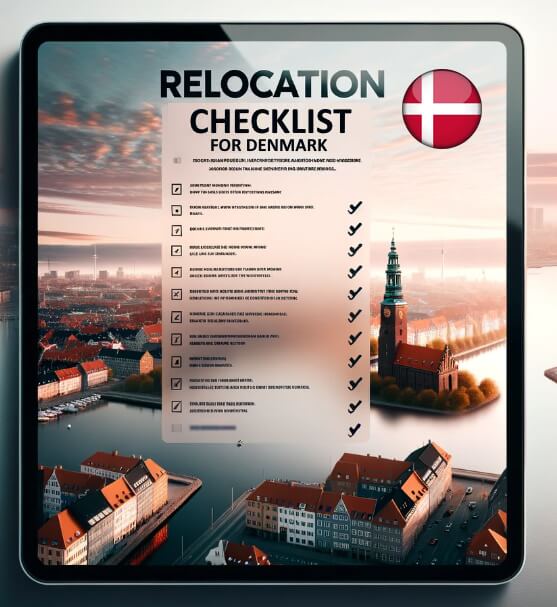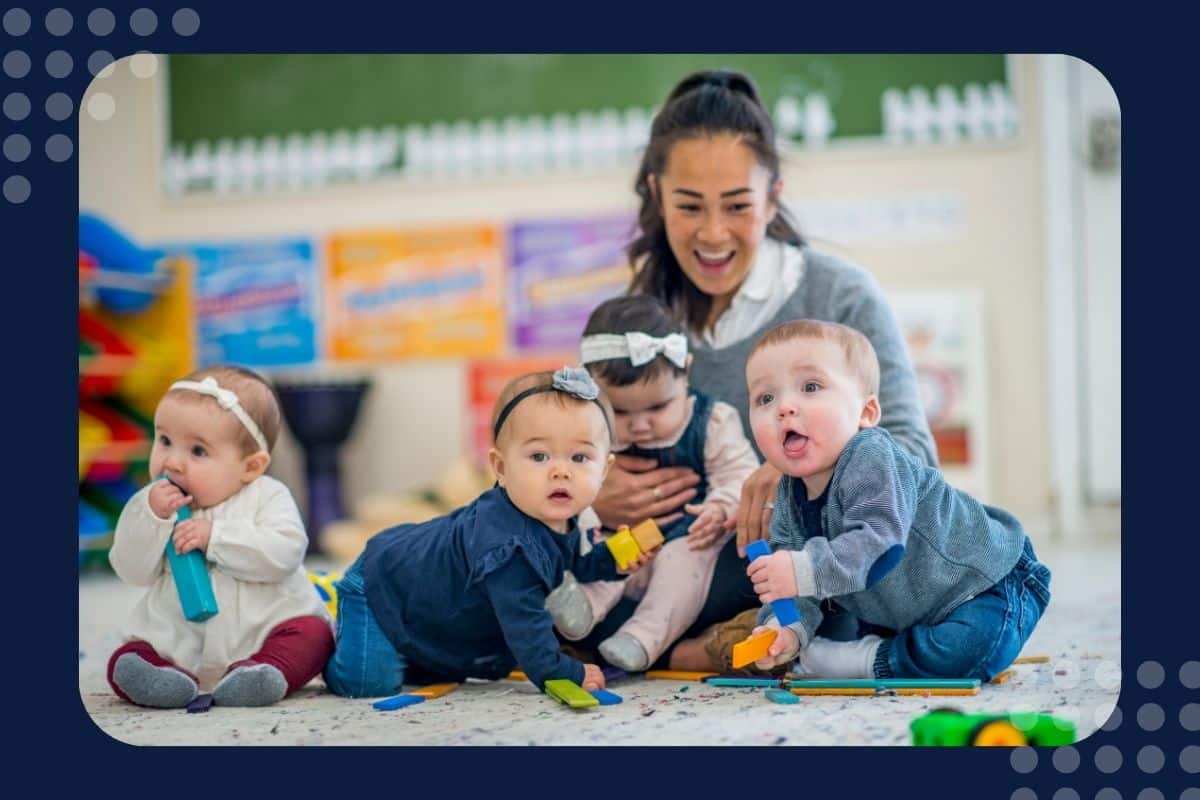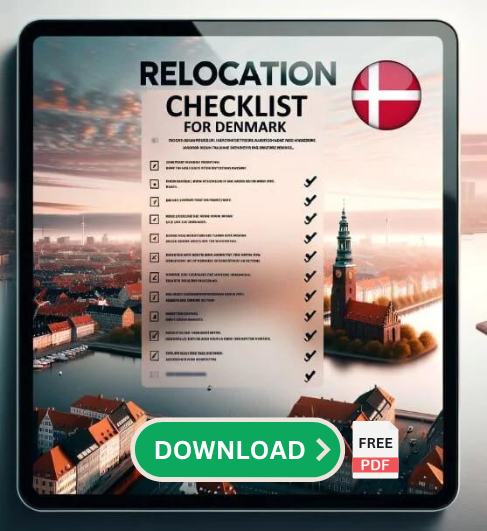Welcome to our concise, user-friendly guide on the Danish Primary School system. Designed specifically for expatriate families, this guide aims to simplify your navigation of Denmark's education system, which, while robust and high-quality, may seem complex initially, particularly if Danish isn't your first language.
Our guide provides essential information on Denmark's public, private, and international schooling options, along with insights, procedures, and handy tips to ease your journey. Understanding this system allows you to make informed decisions that best serve your child's needs and your family's expectations.
Ensuring a smooth educational transition is crucial for your child's adjustment process in a new country. So, let's dive right into understanding primary schooling in Denmark.
Key Takeaways
- The Danish primary school system, known as Folkeskole, focuses on holistic development and inclusivity.
- Non-Danish speaking students receive dedicated language support in schools.
- Denmark offers a range of school options including public, private, and international.
- Active parental involvement is strongly encouraged and highly valued in Danish schools.
- After-school activities, or "fritidsordning", play a significant role in children's education in Denmark.
- The Danish education system provides comprehensive support for children with special education needs.
The Danish Primary School System
One of the beautiful aspects of Denmark is its commitment to offering quality education to all children, and this is vividly reflected in the country's primary school system. Denmark's primary education is often referred to as 'Folkeskole'. However, before we delve into the specifics, it's crucial to familiarize ourselves with the general structure and key features of this system.
Definition and Purpose of Folkeskole (Public School)
The Danish public school system, called the Folkeskole, offers ten years of primary and lower secondary education. This includes one pre-school class, nine primary and lower secondary school years, and a voluntary tenth year. It's a comprehensive system designed to ensure that every child, regardless of background or individual capabilities, can enjoy and benefit from a quality education.
Age and Year Group Structure
Children usually start attending Folkeskole at the age of six and continue until they are sixteen. The structure is pretty straightforward: the preschool year is termed as the '0th' class, and from there, students progress from 1st through 9th grade, with an optional 10th grade if desired.

Overview of the Curriculum
The Danish primary school curriculum is diverse and all-encompassing, focusing not just on academics but also students' overall personal and social development. Subjects taught include Danish, mathematics, English, other optional foreign languages, and science, physical education, music, and arts. Children also participate in optional Christian studies, though non-participation options are available for those of different faiths or belief systems.
School Hours and Holidays
School hours in Denmark typically run from around 8 am to 2 pm for the younger grades, gradually extending to 3 pm or so for the older children.
Danish schools also enjoy generous holiday periods. Besides the long summer break, there are autumn, Christmas, winter (week 7), and Easter holidays. Remember, it's the perfect time for your child to unwind, rejuvenate, and also explore other non-academic pursuits.
With this basic framework in mind, you're off to a strong start in understanding the Danish primary school system. The goal here is to offer your child a well-rounded education that serves as a solid foundation for their future academic journey and overall growth.

Admission Process
We all know that their education takes center stage when it comes to our children. Yet, figuring out the ins and outs of a new school system can be daunting. Fear not, we're here to guide you every step of the way through the admission process in Denmark's primary schools.
Determining Eligibility (Residential Requirements, etc.)
Your child's eligibility for school admission primarily depends on your family's residence status in Denmark. Children residing in Denmark are entitled to attend public school. As long as you have an address in the municipal region, you're all set on this front.
Enrollment Procedure for Public and Private Schools
Enrollment procedures can vary slightly between public (Folkeskole) and private schools. For public schools, your local municipality typically handles the admission process. You don't have to worry about missing deadlines, as they will send you a letter with detailed instructions when it's time to enroll your child.
For private schools, you would need to reach out to the school directly for their specific enrollment procedures. Some private schools might have waiting lists, so it's advisable to plan ahead and get your application in early.
Waiting List Process, if any
While waiting lists are less common for public schools, they are not unheard of for popular or private schools. Therefore, if you have a particular school in mind, it might be wise to inquire about their application timelines and waiting list policy.
Required Documentation for Admission
As for the paperwork, you typically need proof of residence, your child's birth certificate, and any previous school records if applicable. Remember, each school might have specific documentation requirements, so make sure to inquire in advance.
Language Support for Non-Danish Students
Feeling concerned about your child's language proficiency in a new country is perfectly normal. But worry not, because Denmark offers ample support to help non-Danish speaking students seamlessly integrate into the schooling system. Let's dive into this more to understand how your child will be supported in their language learning journey.
Introduction to Danish as a Second Language (DSL) Program
To ensure that all children, irrespective of their linguistic background, receive quality education, Denmark has a wonderful program in place called Danish as a Second Language (DSL). This program is designed for children who do not speak Danish at home. The idea is to provide these children with the necessary language support they need to succeed in their academic journey.
Overview of Other Support Systems Available for Non-Danish Speakers
Besides the DSL program, schools offer a range of other supports to help non-Danish speaking students. Some schools have specialized language centers or offer additional language classes. Also, parental involvement is highly encouraged, so don't hesitate to engage with teachers about any concerns you may have about your child's language acquisition.
Remember, learning a new language is a journey, not a race. With the right support and encouragement, your child will become more comfortable with Danish over time. But, just like any journey, it takes time, patience, and a lot of practice. And rest assured, the Danish school system is there to support your child every step of the way.
Related: Best books for learning Danish & Best Apps for learning Danish
Private and International School Options
While the Danish public school system (Folkeskole) is robust and well-structured, Denmark also offers a variety of private and international schools. Each family has unique needs and expectations, and these alternative options might better suit some of those. Let's explore these choices and how they differ from the public school system.
Difference between Private, International, and Public Schools
Private schools in Denmark, also known as "free schools," provide an alternative to the public schools. While they follow the same core curriculum as public schools, private schools often have a specific focus or philosophy guiding their education style. This could be religious, pedagogical (such as Montessori or Waldorf), or language-based.
International schools, on the other hand, offer curriculums that align with other countries' education systems, such as the International Baccalaureate or the British GCSE and A-Level system. These schools are often English-speaking and can provide a more familiar environment for children who have previously been in such a system.
Tuition Fees and Financial Considerations
One key difference between public, private, and international schools is the cost. Public education in Denmark is free of charge. However, both private and international schools require tuition fees. While private schools are partially subsidized by the government, leading to relatively lower fees, international schools tend to have higher tuition costs.
Admission Procedures for International Schools
The admission process for international schools can differ significantly from school to school. Typically, it involves an application form, an interview, and sometimes an entrance test. It's important to reach out to the school directly to understand their specific admission requirements.
Remember, there's no one-size-fits-all when it comes to education. What matters most is finding the environment where your child will thrive and grow. Take your time, ask questions, and trust that you will find the best fit for your family.
Parental Involvement
Navigating a new education system can feel a bit like stepping into a different world. But, as in all new adventures, it becomes easier once you find your bearings and engage actively. When it comes to your child's education in Denmark, your involvement can make a world of difference. Here's how you can play a part in this journey.
Related article: Daycare in Denmark
Parent-Teacher Meetings
Regular parent-teacher meetings form a critical part of the Danish school system. These meetings are an excellent opportunity for you to learn about your child's progress, understand the teaching methodologies, and discuss any potential challenges. By participating actively, you'll find it easier to support your child's education at home and to forge a healthy and beneficial relationship with their teachers.
School Board and Parents' Associations
Most schools in Denmark have a school board and a Parents' Association. The school board helps shape the school's work and development, and the Parents' Association typically organizes social events and activities. Both offer fantastic platforms for parents to have their voices heard and to get involved in the school community.
Volunteer Opportunities for Parents
Danish schools often encourage parents to volunteer for various activities, ranging from school trips to fundraising events. This can be a great way to understand the school culture better, meet other parents, and even practice your Danish skills, if you're up for it!
Remember, your active participation not only enriches your child's educational experience but also eases your family's integration into Danish life. You're doing an incredible job taking these steps for your child.
After-School Activities
School in Denmark is not just about academics; it's about the overall development of your child. After-school activities, also known as "fritidsordning" or just "frit" for short, play a significant role in providing a well-rounded experience for children. Let's delve a bit deeper into what these activities entail.
Overview of After-School Activities
After-school activities in Denmark offer a broad range of options to cater to different interests and talents. These may include sports, music, arts and crafts, drama, and outdoor adventures, among others. The goal is to foster a holistic development approach, encouraging children to learn new skills, cultivate their interests, and build social relationships outside of the classroom environment.
Sign-Up Procedures and Costs
The process to sign your child up for after-school activities can vary from school to school. Some schools may offer sign-up options at the beginning of the academic year, while others may have ongoing enrollment. There may be a fee associated with some of these activities, especially those that require special equipment or coaching. Check with your school for specific details.
Importance of Extracurricular Activities for Integration
Engaging in after-school activities can be an excellent way for your child to feel more integrated into their new surroundings. It provides a relaxed setting to make friends, practice language skills, and adapt to Danish social norms.
Remember, a well-balanced education extends beyond the classroom. Extracurricular activities contribute to the overall growth and development of your child, fostering their creativity, confidence, and social skills. As parents, encouraging and supporting your child in these endeavors is another wonderful way to enhance their educational journey in Denmark.
Related: The Danish Identity Explained
Special Education Needs and Support Services
Denmark is renowned for its inclusivity and commitment to ensuring all children receive a quality education. This includes children with special education needs. If your child requires additional support, you'll find a range of services available in Denmark. Let's discuss this further.
Understanding Special Education in Denmark
In Denmark, the term 'special education' encompasses a broad spectrum. It includes support for learning difficulties, physical disabilities, behavioral challenges, and gifted education. The aim is to ensure that all children, regardless of their individual needs, have equal opportunities to thrive in their educational journey.
Process for Assessing Special Educational Needs
If a teacher or a parent suspects a child may benefit from special education, the school's support team will typically conduct an assessment. This process involves careful observation, tests, and sometimes consultations with psychologists or other specialists. It's designed to identify the child's unique needs and determine the best possible support strategies.
Support Services Available
Support services in Danish schools can take various forms, such as additional teaching resources, specialized learning plans, or adaptive equipment. Some schools may also have special education classes or units. Importantly, the support is tailored to each child's individual needs and is aimed at promoting their learning and well-being.
Parental Rights and Involvement
As a parent, you play an integral role in this process. Your insights about your child's needs and abilities are valued, and you have the right to be involved in all discussions and decisions regarding your child's education plan.
Remember, every child is unique, and Denmark celebrates this diversity through its inclusive education system. It's natural to have questions or concerns, especially when navigating a new education system in a different language. But rest assured, the Danish system is designed to provide every child with the support they need to flourish.
Next Steps and Resources
Now that you have a comprehensive understanding of the primary school landscape in Denmark, what should you do next? Let's map out the subsequent steps and provide you with some handy resources.
Visit Local Schools
Seeing is believing. Take some time to visit the schools in your local area. This can help you get a real feel for the place and people. Many schools are happy to give prospective parents a tour, so don't hesitate to reach out.
Join Expat Communities
Connect with other expats who've gone through the same journey. They can be invaluable sources of information, support, and friendship. There are several online expat communities, such as the "Foreigners in Denmark" Facebook group, where you can start.
Reach Out to Schools
If you have questions or doubts, reach out to the school directly. They are there to help and will provide you with accurate and up-to-date information.
Continue Your Research
This guide is a starting point, but there is always more to learn. Here are a few resources to continue your research:
- Ministry of Children and Education: https://eng.uvm.dk/
- Danish as a Second Language: https://eng.uvm.dk/primary-and-lower-secondary-education/the-folkeskole/subjects-and-curriculum
- Study in Denmark: https://studyindenmark.dk/
Embrace this adventure with positivity and open-mindedness. While it's natural to feel overwhelmed at times, remember that every journey begins with a single step. Each question you ask, each bit of knowledge you acquire, is a step forward in this exciting new chapter of your life.
We hope this guide has been a helpful starting point, and we're here to support you along the way. Onwards and upwards – your family's Danish adventure awaits!
Vi ses snart (See you soon)!




![Daycare in Denmark: The Danish Daycare System Explained [year] Daycare in Denmark](https://denmarkexpat.com/wp-content/uploads/2023/09/Daycare-in-Denmark-150x150.jpg)
![Work Permit in Denmark [year]: All You Need To Know work permit in denmark](https://denmarkexpat.com/wp-content/uploads/2023/08/work-permit-in-denmark1-150x150.jpg)
